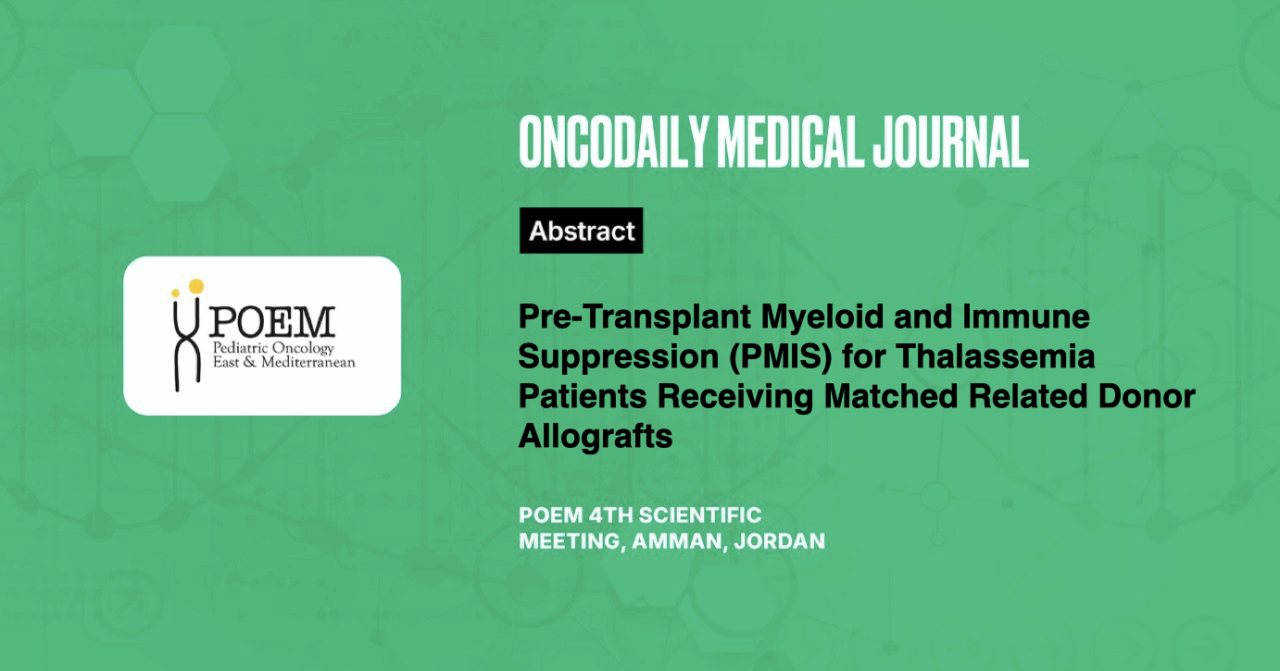Pre-Transplant Myeloid and Immune Suppression (PMIS) for Thalassemia Patients Receiving Matched Related Donor Allografts
Abstract
Introduction: Allogeneic hematopoietic stem cell transplantation (allo-HSCT) remains the only curative treatment for patients with thalassemia major. We present our experience using pre-transplant myeloid immunosuppression (PMIS) in matched related donor (MRD) transplants for thalassemia patients.
Methodology: This retrospective analysis includes patients who underwent MRD allo-HSCT with PMIS since October 2020. PMIS consisted of one or two cycles of fludarabine and dexamethasone, administered four weeks apart, in combination with hydroxyurea. Conditioning regimens were risk-adapted: high-risk patients (age >14 years or Class 3 thalassemia) received fludarabine-based reduced-toxicity conditioning (RTC), while low-risk patients underwent myeloablative conditioning (MAC). GVHD and antimicrobial prophylaxis were administered per institutional protocols.
Results: A total of 22 patients received PMIS. The median age at transplant was 15.3 years, with a median ferritin level of 1200 ng/mL, median liver span of 15 cm, and median absolute lymphocyte count of 500/μL. Nine patients received MAC, while the remaining received RTC. Neutrophil and platelet engraftment occurred at a median of 17 days and 19.5 days, respectively.
With a median follow-up of 25.2 months (range: 2.7–52), only one patient in the RTC group experienced secondary graft failure on day 100. Acute gut GVHD occurred in one patient, while two developed chronic GVHD. Molecular CMV reactivation was observed in 17 patients without clinical symptoms. Other infections included bacteremia (8 patients) and BK cystitis (2 patients).
Conclusion: PMIS in MRD allo-HSCT for transfusion-dependent thalassemia was well-tolerated with no significant toxicity. This approach may improve thalassemia-free survival, particularly in high-risk patients. Close monitoring for viral reactivation is crucial to optimizing post-transplant outcomes.





